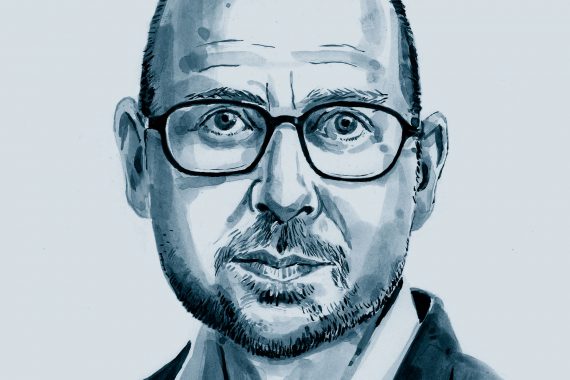Gabapentinoids – the new diazepam?

The establishment ignores GPs. It prefers the advice and glamour of ‘expert’ or media doctors. But the deference shown to the ‘expert’ is creating overtreatment, medicalisation and iatrogenic harm.
GPs have to ignore this advice. We won’t prescribe statins to everyone because it is irrational and stupid. We don’t accept that ‘pain is what the patient says it is’, because common sense dictates that it isn’t.
And we have seen the damage when experts have free rein. Diazepam was peddled as a safe and effective treatment for anxiety by companies and experts alike. When I started work in the early 1990s the consequence of this advice was evident everywhere. Herds of middle-aged patients zonked out and dependent on benzodiazepines. And benzodiazepines were being widely abused by a younger generation. My surgeries were spent dealing with drug-seeking behaviours, lies, confrontation, rebound agitation, insomnia and withdrawal seizures. It took the establishment decades to realise the harms we caused. Even today, we are still dealing with it.
GPs are first to notice the danger posed by psychoactive drugs. In the past five years my sensor has been off the scale with the gabapentinoids (gabapentin and pregabalin). Patients are seeking them using the crude acting skills that I used to witness with benzodiazepines: anger, tears and threats; constant requests for dose increases; stories of lost scripts; and a tag-team approach with friends who ‘corroborate’ stories.
If you google ‘gabapentinoids’, it is clear they are being widely abused. Large quantities are taken as single doses. Users describe them as the ‘ideal psychotropic drug’ with effects of ‘great euphoria’, ‘disassociation’ and an ‘opiate buzz’ as they boost the effects of these drugs.[1,2]
I wrote an article in the BMJ in 2013[3] highlighting these concerns. Since then, prescriptions have nearly doubled in three years to 10 million scripts and more than £300m in costs.[4] Such rapid increases are the signature of inappropriate prescribing and iatrogenic harm. Many practices started prescribing gabapentinoids on the back of specialist endorsement, despite the existence of effective and less harmful alternatives.[5,6] But requests from pain clinics and psychiatry come thick and fast. We decline many, then weather the storm of protest.
Do we have a problem with gabapentinoid abuse? If it quacks like a duck and looks like a duck, then it’s a ducking duck. Pregabalin is already a controlled medication in the US and there is debate about controls in the UK. The research base for the benefits of gabapentinoids is of short duration and in a small, defined population where as few as one in 10 benefits.[7] We need to change our prescribing policy now and limit the use of gabapentinoids.[2]
We know the pattern: GPs will be blamed even if we just follow orders. I get tired that no one listens to generalists. This is déjà vu. Do we want another benzodiazepines disaster?
Dr Des Spence is a GP in Maryhill, Glasgow, and a tutor at the University of Glasgow
References
Visit Pulse Reference for details on 140 symptoms, including easily searchable symptoms and categories, offering you a free platform to check symptoms and receive potential diagnoses during consultations.









